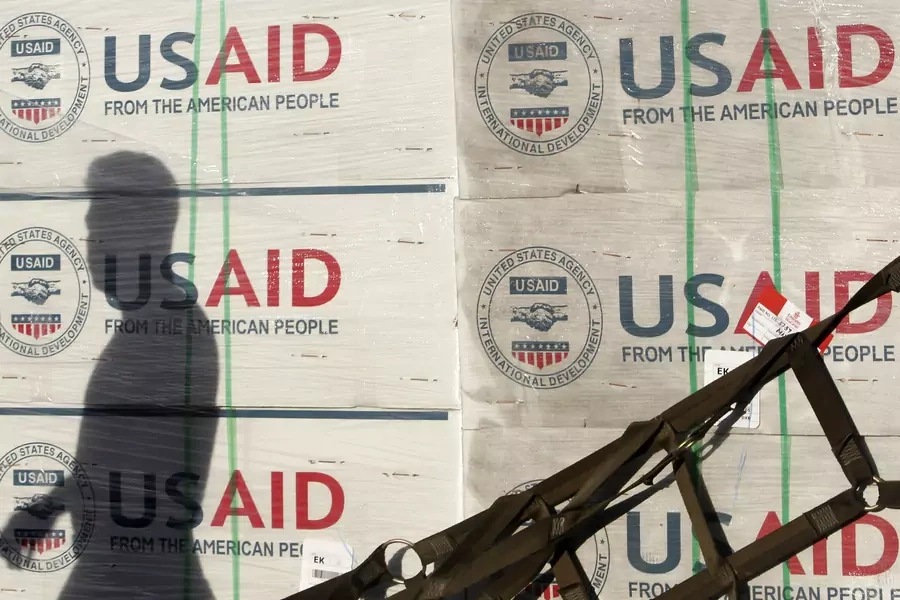Why Cutting Foreign Aid Benefits Terrorists

Max Friedman is an intern in the Center for Preventive Action at the Council on Foreign Relations.
President Donald J. Trump’s proposed budget for the 2018 fiscal year includes cuts in funding for USAID and developmental assistance programs. The budget plan would decrease funding for the State Department and international programs, including USAID, by more than eleven billion dollars, or almost 30 percent. Meanwhile, the Defense Department would receive an increase of fifty-two billion dollars, inflating its budget by roughly an additional 10 percent. These proposals demonstrate the Trump administration’s focus on the use of the military to advance U.S. interests overseas. Terrorism is President Trump’s top foreign policy priority, but cutting foreign aid and relying on the military will not help the United States combat it. Terrorism is not a problem for the military alone; its political and economic roots demand instead a USAID-led effort.
More on:
Terrorism is largely predicated on inequality in political and economic systems. Fourteen years ago, Robert Pape, professor at the University of Chicago, found that suicide terrorist organizations were organized almost exclusively around the goal of expelling foreign occupiers. This conclusion, still valid today, underscores the importance of the political context surrounding the creation of terrorist organizations, and discounts the assumption that terrorists do not have legitimate political goals.
Moreover, certain political systems exacerbate grievances that lead to terrorism. Regimes that depend on foreign powers for military backing and funding are more likely to be responsive to the priorities and preferences of their outside backers, not to those of their own citizens. Terrorist groups capitalize on the local population’s feelings of disenfranchisement, promising to empower those who join their organizations. Exclusion from economic gains, making individuals believe that elites are not sharing revenue, may also be another significant factor driving extremism. As inequality drives individuals to look for alternative forms of governance, many terrorist groups promise new, more inclusive systems in which power and financial gains are shared more equally. Addressing the political and economic reasons why many people join terrorist organizations requires smart aid policy and a well-resourced USAID. Indeed, many military leaders have recognized this fact. This past February, over one hundred retired generals and admirals sent a letter to congressional leaders denouncing the administration’s proposed cuts to foreign aid, writing “we know from our service in uniform that many of the crises our nation faces do not have military solutions alone.”
Aid is clearly not a cure-all for terrorism, and Trump is correct to question its effectiveness. There are many examples of ineffective foreign aid projects; U.S. aid to Pakistan in the early twenty-first century is one such example. Much of the funds intended for counterterror operations and training in Pakistan in the mid 2000’s were instead diverted by the military for private gain or for alternative purposes. Moreover, studies have found that, in certain regimes, foreign aid can actually increase terrorist activity, as governments that benefit from counterterrorism assistance have an incentive to maintain a perpetual threat of terrorism to ensure funds continue to flow.
However, the United States should not give up on foreign aid simply because some projects have been failures. Indeed, there have been many examples in which foreign aid has stabilized countries or eliminated the threat of terrorism, such as Indonesia, where aid helped foster the political stability that stamped out any sparks of terrorist activity. Foreign aid can give the United States leverage and the ability to encourage governments to reshape unequal, overly-centralized countries into more egalitarian societies in which ethnic groups share power and economic benefits fairly. For example, a recent study found that governance and civil society aid can reduce domestic terrorism. The United States should learn how to give aid in productive ways that encourage leaders to share revenue and political power, while preventing itself from being portrayed as a manipulative foreign occupier.
As the famous adage goes, if the only tool you have is a hammer, you will treat everything as if it were a nail. The 2018 budget will leave the United States holding a hammer, but terrorism is not a nail. Guns cannot defeat economic inequality, military operations will not eliminate political corruption, and airstrikes will not reverse government oppression. It is difficult to convince terrorist groups that the United States is not an occupying power by sending in more troops and conducting more operations in places like Somalia, Yemen, Iraq, and Syria. History has demonstrated that the U.S. military cannot create a competent state on its own.
More on:
Cutting aid is short-sighted and counterproductive. Instead, the United States should more effectively advance its interests by reevaluating its programs and experimenting on new methods of distributing aid. U.S. assistance addresses the conditions producing terrorism in ways that the military can never do, and the United States should expand its focus beyond simply eliminating terrorist groups; it should work to address the systemic inequality that gives rise to these groups in the first place.
 Online Store
Online Store